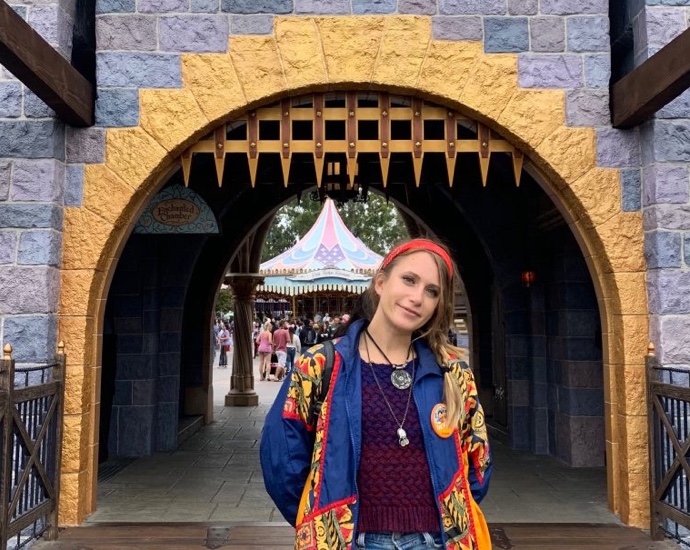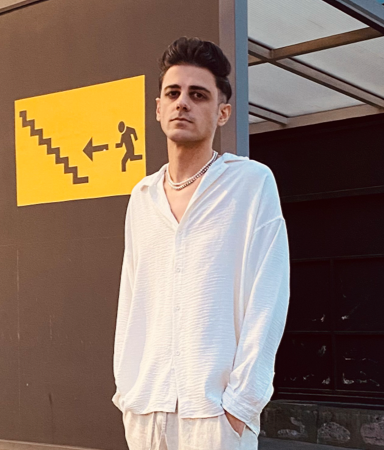Where are you based?
I am originally from Toronto, Canada. Currently, I am based in Los Angeles.
Where do you work? What do you do?
I am a contributor for Forbes and I am the Founder of Westcott Multimedia. An automated advertising platform built for independent record labels. Our mission is to use data to create a connection by getting the right music to the right people at the right time. There are over 40,000 songs uploaded every day onto Spotify and access to promotion is a challenge. In other words, getting your music on the radio or playlists. So how does one get noticed through all of the noise? What we do, is we launch digital advertisements online in reaction to spikes in streaming which represent moments of increased awareness about the band. We help to control your spending, increase an artist’s runway and subsequently, their chances of breaking a hit in the online marketplace. We focus a lot on promoting catalog music.
What are you listening to?
Right now, I am listening to “Old Town Road” by Lil Nas X. Actually, I am currently listening to not only the original, but the remix by Billy Ray Cyrus and the remix by Diplo. This song has such an awesome story behind it. It had originally charted on the Country charts but was taken down because it could also be perceived as a hip hop song. Regardless, country fans were connecting with it and country radio programmers were playing it. This is a perfect example of a common behavior within the music space of industry professionals thinking that they can dictate and define what culture connects with. After this happened, a legendary country artist named Billy Ray Cyrus, who also happens to be Miley Cyrus’s father remixed the track forcing it back into the country charts.
How do you find new music?
I discover new music through recommendations through friends and my network or whatever comes across my news feed. I love seeing video advertisements for artists music videos on my Instagram or YouTube.
Saying that I look at music discovery in two ways; first, as a listener discovering new music and then as an artist discovering new fans. Believe it or not, when you are using data, these two perspectives become very different. For example, Spotify uses data to help users discover new music, so they categorize genres as Chill, Dinner Music, Sleepy Time. However, I have yet to see an artist walk out of the studio pronouncing they’ve made the best “Workout song that ever existed!” Saying that, when an artist is trying to bucket listeners most likely to listen to their Hip Hop song, they will categorize their listeners as hip hop, rap or r&b, not workout. It’s subtle, but in the world of data and bucketing audience based on listening preferences, categorization of titles matter from the perspective of who you are discovering for and for what purpose. When it comes to artists discovering new fans, I think discovery is a huge challenge.
I benchmark the functionality of the products we build off of how I discover new music or don’t, online. When I was living in Nashville, I discovered a song called “do re mi” by an artist named Blackbear and I fell in love with it. When this happens with a song, I play it on repeat. That following weekend, Blackbear did a show in Nashville and I had no idea! If I had known, I would have loved to by a ticket. Even though I had listened to the song probably 60 times in a 48-hour period, at no point in time did I see an advertisement on my Facebook letting me know that this artist was in town. Currently, there is no link between music listening and the ability to discover, reach and cultivate a base of fans.
What formats do you usually listen to? LP, CD, Cassette, Digital, Streaming Services and why?
I listen on streaming services, Spotify is my goto. I like the flow and functionality of Spotify versus other digital service providers, that is the primary reason I use the service.
Where do you do most of your music listening?
Everywhere, all the time. If I could have a permanent soundtrack to my life, like those old black and white movies where the entire storyline is amplified by a background soundtrack, I would do it in a heartbeat. I listen to different types of music for different activities and moods but for that reason, in terms of music preferences, I am genre agnostic. If it is good, it’s good. Currently, I have two apple speakers that like to randomly switch from playing my Spotify account to my ancient iTunes account containing nothing but Louis Armstrong and Ella Fitzgerald. Amazing music but arguably not suitable for every situation. For this reason, I’m looking into new stereo systems.
How do find and listen to pre-release music?
I get sent pre-release music from my labels, artists and friends in the music space. It’s always a treat when that happens.
What are your frustrations with listening to music digitally? Any benefits?
I love listening to music online, the internet gives you the ability to research and learn about new waves of music all over the world.
How do you keep track of everything you are listening to?
My songs list on Spotify is like a chronological soundtrack to my life. Everything I listen to is saved here. So if I go down my song list, I can identify what songs were summer 2017, summer 2016 and so on.
Do you tip other people off to new music? How?
When I can, I do. I am starting a series of articles on Forbes every month that will highlight a song I’ve discovered and tell the story of the artist and the song’s trajectory using data to back it up.
Anything you want to “promote”?
We have built our data model off of taking traditional practices in the music industry like the traditional way of conceptualizing a “Hit Record” and the blockbuster strategy, and we have reversed this thinking. We are writing about our theories and models in an effort to promote new ways of using data to break hit records versus predict them. To learn more and jump on the bandwagon, follow me on my page at Forbes.com.




